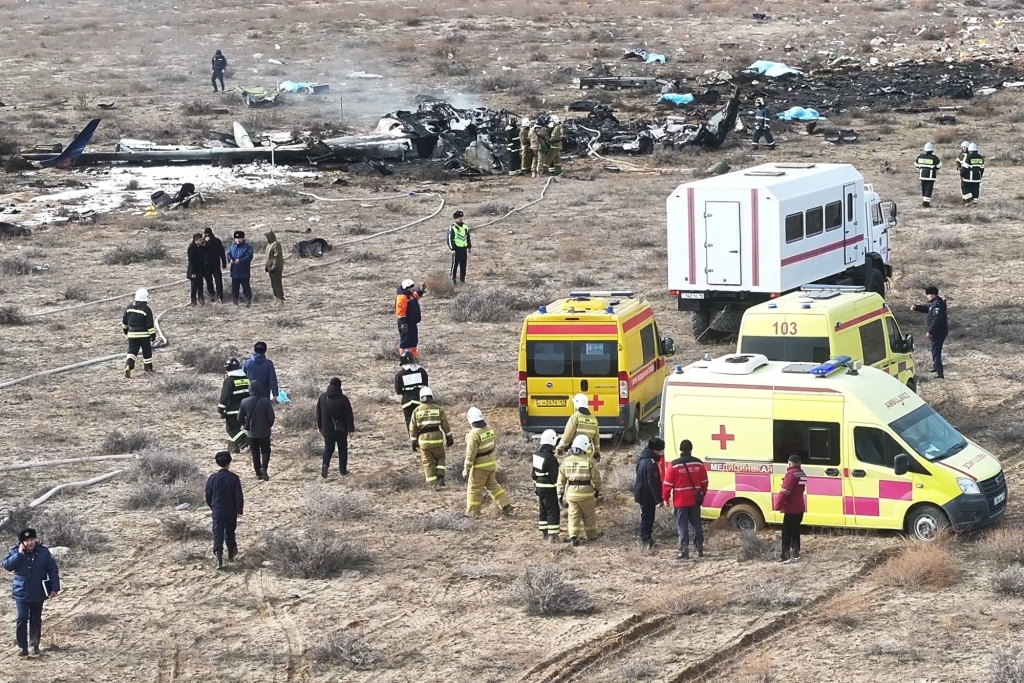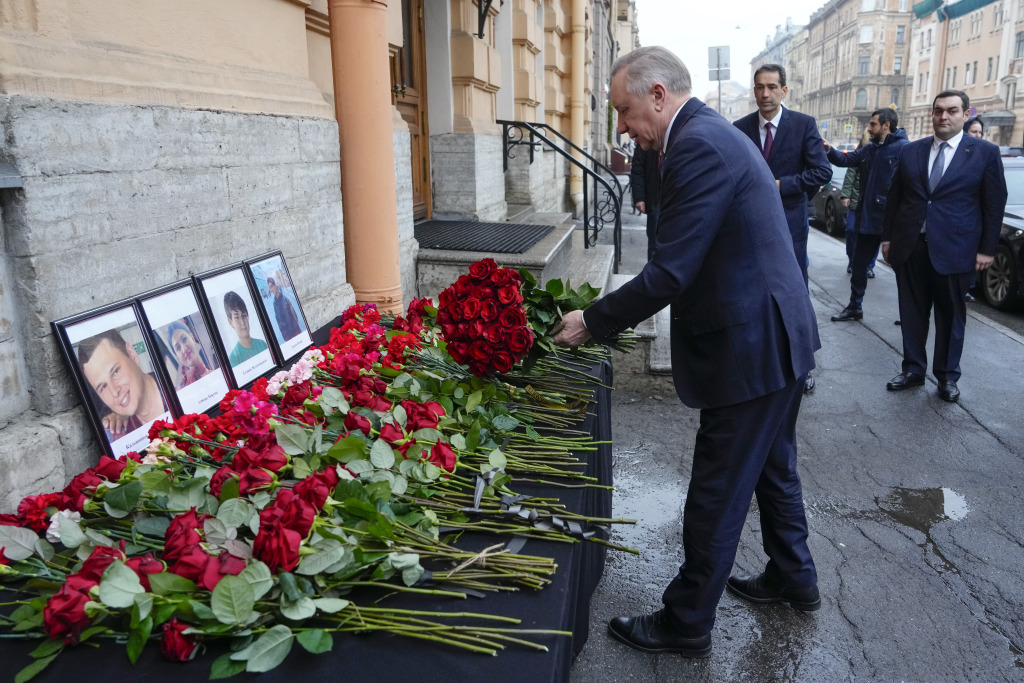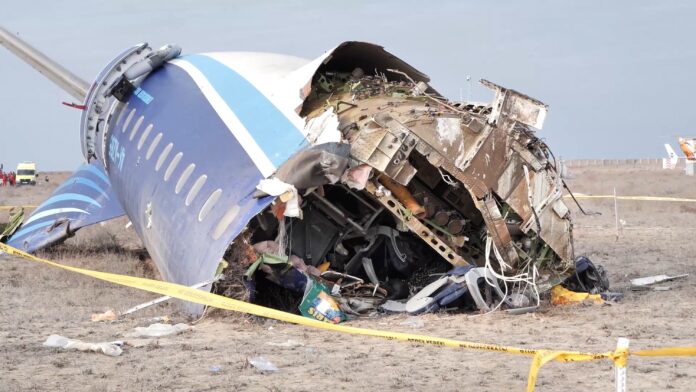A tragic crash involving an Azerbaijan Airlines flight near Aktau, Kazakhstan, has claimed the lives of at least 38 people, with aviation experts and Ukrainian officials pointing fingers at Russia. The Embraer 190 passenger jet was en route from Azerbaijan to Russia when it veered off course and crashed on the opposite shore of the Caspian Sea, raising questions about the cause of the disaster.

Details of the Crash
Flight J2-8243, carrying 62 passengers and five crew members, crashed Wednesday morning. Kazakh authorities confirmed that 29 survivors were hospitalized, including two children, while both pilots were among the deceased. Emergency responders recovered four bodies from the wreckage as investigations continued.
The aircraft, which had flown significantly off its scheduled route, came down shortly after reports of drone strikes in southern Russia. Airports in the area had previously been shut down due to drone activity, and the nearest airport on the flight’s path was closed on the morning of the crash.
Conflicting Theories
Aviation-security firm Osprey Flight Solutions suggested that the plane was “likely shot down by a Russian military air-defense system.” Matt Borie, the firm’s chief intelligence officer, cited wreckage patterns and the volatile security situation in southwest Russia as supporting evidence.
Ukrainian national security official Andriy Kovalenko echoed this theory, alleging in a social media post that a Russian air-defense system was responsible for the crash.
However, Russia’s aviation watchdog attributed the tragedy to an onboard emergency, possibly caused by a bird strike.

Eyewitness Accounts and Aftermath
Video footage captured the plane descending rapidly before bursting into flames upon impact. Thick black smoke billowed from the crash site, and passengers were seen stumbling from a section of the fuselage that remained intact, bloodied and dazed.
The flight’s manifest included 42 Azerbaijani citizens, 16 Russians, six Kazakhstanis, and three Kyrgyzstanis. Azerbaijani President Ilham Aliyev, who was traveling to Russia at the time, canceled his trip upon learning of the disaster.
In a statement, Aliyev expressed his condolences and declared December 26 a national day of mourning in Azerbaijan. “It is with deep sadness that I express my condolences to the families of the victims and wish a speedy recovery to those injured,” he wrote.
Aviation and Political Implications
The crash has sparked renewed scrutiny over air safety in conflict-affected areas. While Azerbaijan Airlines pledged transparency and updated its social media to reflect mourning, tensions between regional powers continue to complicate investigations.
Kazakh authorities are coordinating with aviation experts to determine the exact cause, but with conflicting narratives and international finger-pointing, the path to answers remains unclear.
As the world watches for further developments, the tragedy serves as a grim reminder of the risks inherent in aviation amid geopolitical turmoil.



